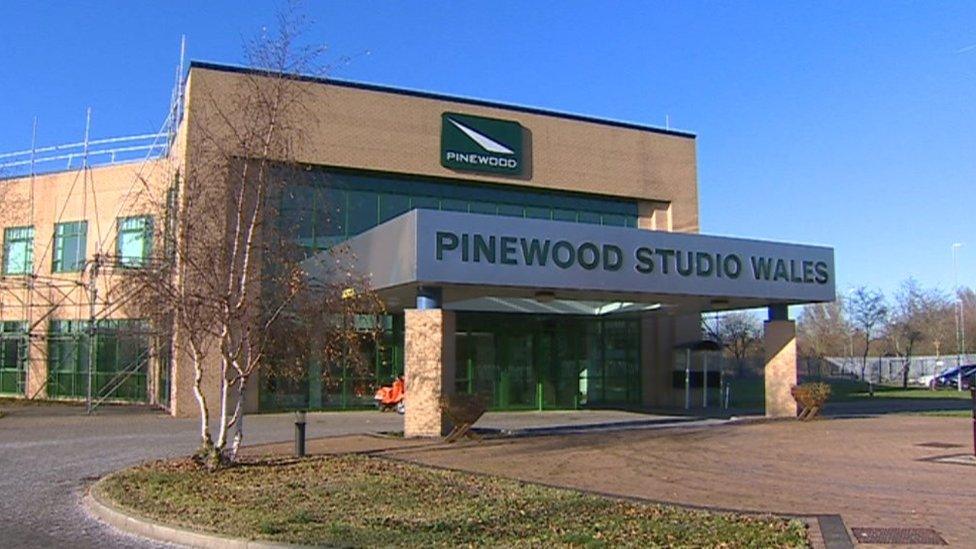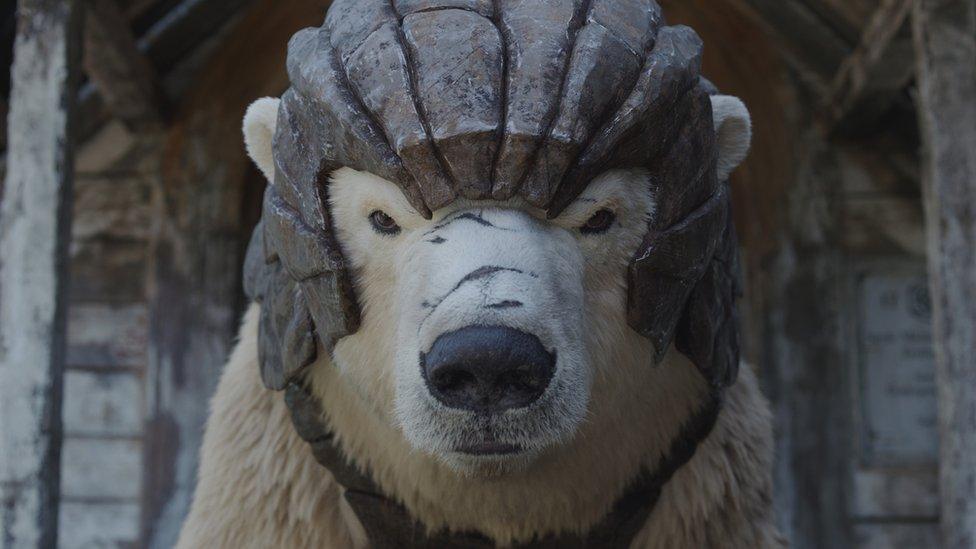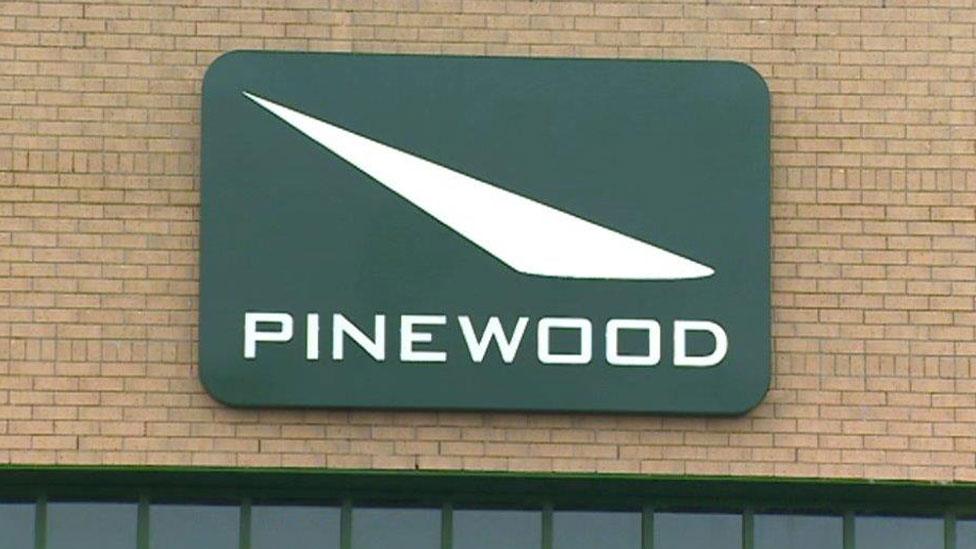Pinewood to end involvement with Cardiff film studio
- Published

Pinewood's involvement in the Cardiff facility will come to an end next March
Pinewood will end its involvement in a controversial Welsh Government-backed film studio from next March.
The internationally-renowned film studio, which has overseen productions for the big and small screen for 80 years, said it would now focus on growth elsewhere.
The company provided services for the Cardiff facility, including sales, marketing and use of its name.
Welsh ministers said they were proud of their association with Pinewood.
The company's main base is at Shepperton, in Surrey, and Pinewood Studios Wales opened at Wentloog in east Cardiff in 2015.
This was after the Welsh Government bought the former warehouse and spent £9.5m fitting it out for Pinewood.
The government was criticised earlier this year for a "catalogue of errors" in the initial deal.
A Wales Audit Office report also estimated the government was paying £392,000 a year to run the studio.
Economy Secretary Ken Skates said last year it ignored advice to walk away from the deal because of concerns about reputational damage caused by the loss of "a very strong brand".

Bad Wolf is behind productions such as His Dark Materials
Independent television company Bad Wolf is now renting the entire studio as tenant, after agreeing in March to rent the space for 12 months, with an option to extend for two more years.
Former BBC executives Jane Tranter and Julie Gardner, who revived Doctor Who in 2005, are behind Bad Wolf.
Pinewood Group chairman Paul Golding said "the last decade has seen the value of film and television production in Wales more than double".
He added: "Wales now has a robust and mature market, with the three main studios in Cardiff currently running at capacity."
Mr Golding said the decision would allow it to concentrate its growth plans on the Shepperton site.
Deputy culture minister Lord Elis Thomas said all three studios in south east Wales - including Wentloog - were currently operating at full capacity, with productions such as His Dark Materials and Brave New World.
He added the "vibrant creative industry" in Wales had spent more than £100m and created more than 2,000 jobs over the last five years.
- Published28 March 2019

- Published20 June 2018
